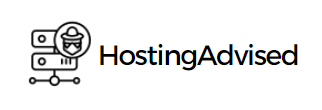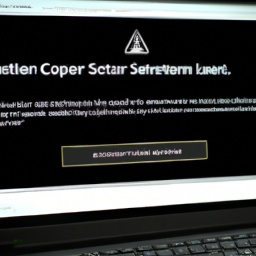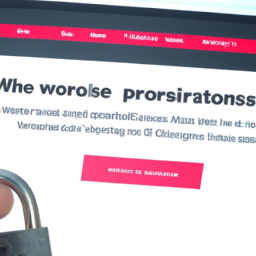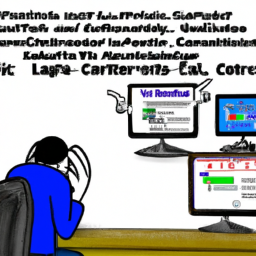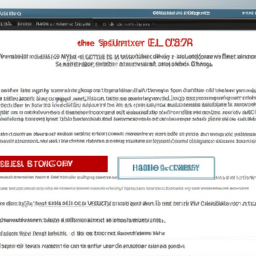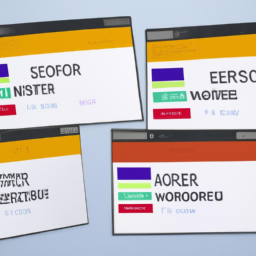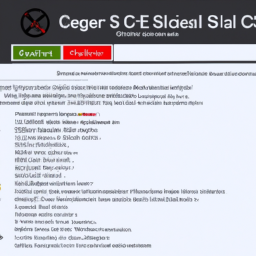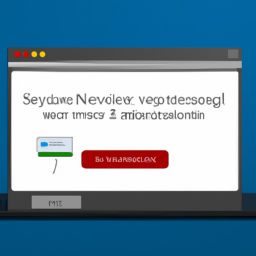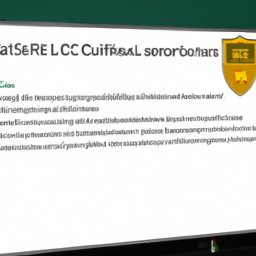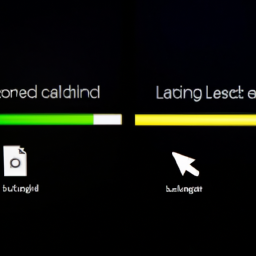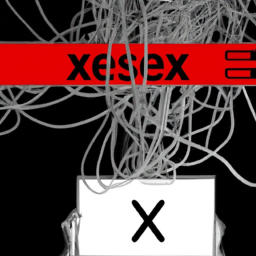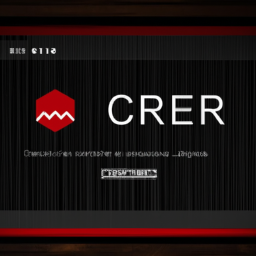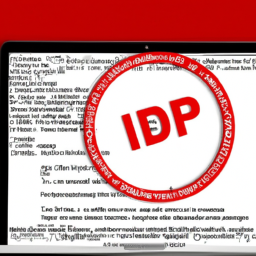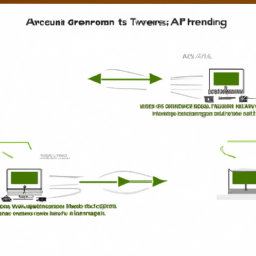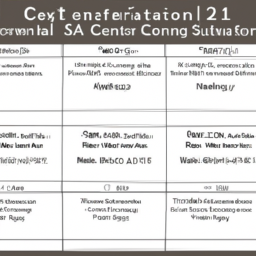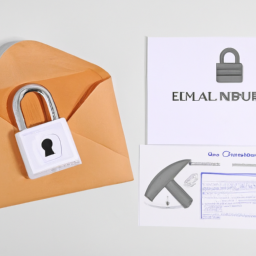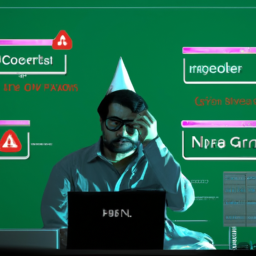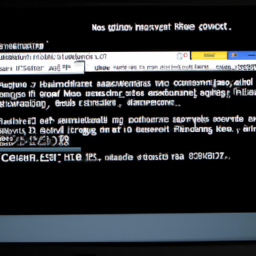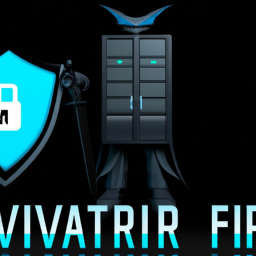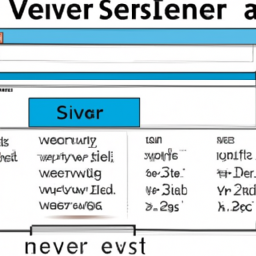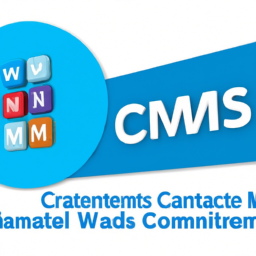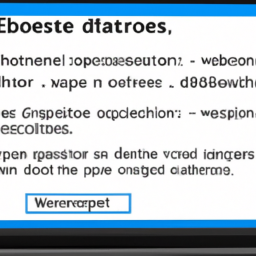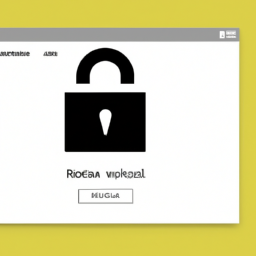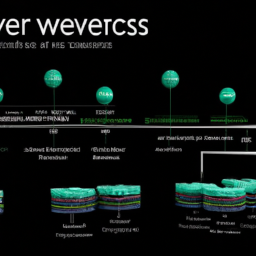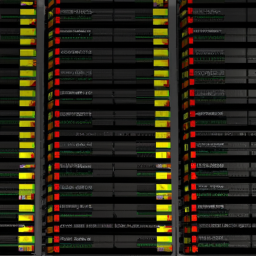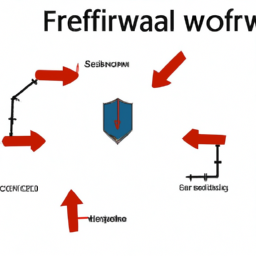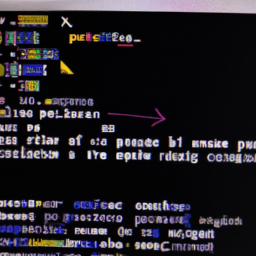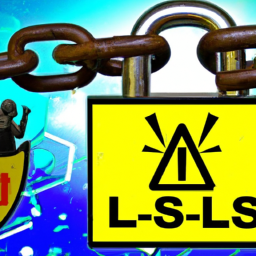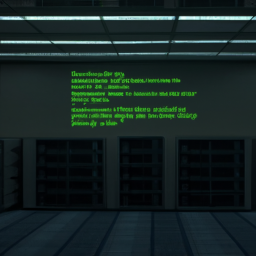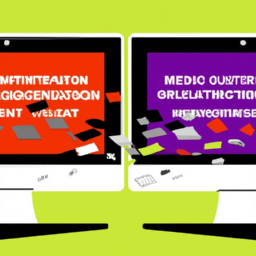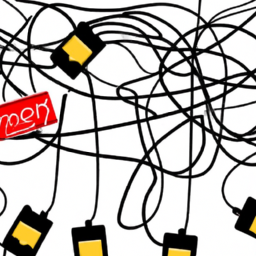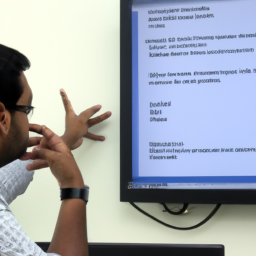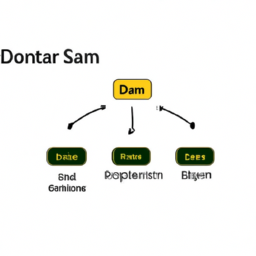Did you know that more than 78% of websites worldwide are powered by PHP? As a PHP user, it is crucial to ensure that your website is compatible with the PHP version provided by your web hosting platform. Incompatibility issues can lead to performance problems, security vulnerabilities, and even website downtime.
This article will guide you through the process of troubleshooting PHP version compatibility for seamless web hosting. You will learn how to identify the PHP version on your hosting platform, understand the compatibility requirements of your website, and update or downgrade your PHP version accordingly.
Additionally, we will discuss how to test your website for compatibility issues and provide tips for troubleshooting and seeking professional help when needed. By following these steps, you will be able to ensure smooth and efficient web hosting for your PHP-powered website.
Key Takeaways
- Identifying the PHP version on your hosting platform is crucial for troubleshooting compatibility issues.
- Keeping PHP up to date can optimize performance and prevent security vulnerabilities.
- Updating outdated plugins and scripts is essential to meet PHP version requirements.
- Seeking professional help from web developers or IT consultants can quickly resolve compatibility issues and enhance the web hosting experience.
Identify the PHP Version on Your Web Hosting Platform
Find out which PHP version your web hosting platform is using so you can ensure a smooth and hassle-free experience.
To check the PHP version automatically, you can use a variety of online tools and plugins that analyze your website’s server configuration. These tools scan your website and provide you with detailed information about the PHP version being used.
On the other hand, if you prefer to manually find the PHP version, you can access your hosting control panel and look for the PHP version information. It’s usually located in the ‘PHP Configuration’ or ‘Server Settings’ section.
Understanding the compatibility requirements of your website is crucial to ensure that your website functions properly on the PHP version provided by your hosting platform.
Understand the Compatibility Requirements of Your Website
To ensure the seamless web hosting of your website, it’s crucial to check the PHP version requirements. This will help you determine if your current web hosting platform supports the required PHP version.
Additionally, consulting the documentation provided by your web hosting platform can provide valuable information. It can help you understand the compatibility requirements and any necessary updates or configurations for your website.
Check the PHP Version Requirements of Your Website
Make sure you’re aware of the PHP version requirements for your website, as this will greatly impact its compatibility and performance. To ensure a seamless web hosting experience, follow these guidelines:
-
Troubleshoot outdated plugins: Outdated plugins can cause compatibility issues with newer PHP versions. Regularly update your plugins and replace any that aren’t supported anymore.
-
Optimize PHP performance: Keep your PHP version up to date to take advantage of performance improvements and security patches. Older versions may lack these enhancements.
-
Consult the documentation of your web hosting platform: Each hosting provider has specific PHP version requirements. Review their documentation to ensure your website meets the necessary criteria.
By understanding the PHP version requirements and taking necessary actions, you can troubleshoot compatibility issues and optimize your website’s performance.
Now, let’s move on to the next section and explore how to consult the documentation of your web hosting platform.
Consult the Documentation of Your Web Hosting Platform
Discover the valuable information you need to optimize your website’s performance by consulting the documentation provided by your web hosting platform.
This documentation serves as a comprehensive guide, offering you insights into the PHP version compatibility and requirements. It is essential to consult this documentation to ensure that your PHP version is supported by your hosting platform.
Additionally, the documentation may provide you with instructions on how to update or downgrade your PHP version if necessary. In case you encounter any difficulties or have specific questions, don’t hesitate to consult the support team of your web hosting platform. They’re there to assist you and provide further guidance.
Furthermore, you can also search for online resources, such as forums or knowledge bases, to find solutions to common PHP version compatibility issues.
Transitioning to the subsequent section, let’s explore how to update or downgrade your PHP version for seamless web hosting.
Update or Downgrade Your PHP Version
Choose a PHP version that suits your needs and effortlessly update or downgrade it to ensure seamless web hosting. To rollback your PHP version, follow these steps:
- Check the current PHP version on your web hosting platform.
- Determine the PHP version required for your website or application.
- If the current version is not compatible, navigate to the PHP settings.
- From the available options, select the desired PHP version.
- Confirm the change and wait for the platform to update.
Test your website for compatibility issues.
Alternatively, you can downgrade your PHP version by following a similar process. By updating or downgrading your PHP version, you can troubleshoot compatibility problems and ensure optimal performance for your website.
Now, let’s move on to the next section and explore how to test your website for compatibility issues.
Test Your Website for Compatibility Issues
Check if your website is compatible with different browsers and devices to ensure a smooth user experience. To test your website’s performance, analyze its code to identify any potential compatibility issues.
Start by checking if your website displays correctly on popular browsers such as Chrome, Firefox, Safari, and Internet Explorer. Make sure all the elements, including images, fonts, and videos, are rendered properly.
Next, test your website on different devices, such as desktops, laptops, tablets, and smartphones, to ensure it adapts seamlessly to different screen sizes and resolutions. Pay attention to any layout or functionality issues that may arise.
By thoroughly testing your website, you can identify and address any compatibility issues before they impact your users. This will help you troubleshoot compatibility issues effectively in the next section about troubleshooting PHP version compatibility for seamless web hosting.
Troubleshoot Compatibility Issues
Explore the labyrinth of compatibility issues that may arise while ensuring your website dances harmoniously across browsers and devices. Troubleshooting techniques play a vital role in identifying and resolving common compatibility errors that can hinder the seamless performance of your website.
Start by checking for compatibility issues with different browsers, operating systems, and screen resolutions. Test your website on various platforms to uncover any discrepancies in rendering, layout, or functionality. Analyze error logs, review code, and use debugging tools to pinpoint the root cause of compatibility issues.
Update plugins, themes, and scripts to their latest versions to eliminate any potential conflicts. Implement feature detection and graceful degradation techniques to optimize your website’s performance across different devices and browser versions. By mastering these troubleshooting techniques, you can overcome compatibility hurdles and ensure a smooth browsing experience for your users.
Transitioning into the subsequent section, seeking professional help can be beneficial in handling complex compatibility challenges.
Seek Professional Help
If you’re experiencing compatibility issues with your PHP version for seamless web hosting, there are three key points to consider.
First, you should contact your web hosting provider to seek their assistance and guidance. They’ve got the expertise to troubleshoot and resolve any compatibility issues you may be facing.
Second, you can hire a web developer who specializes in PHP or an IT consultant who can provide expert advice and assistance. They’ll be able to analyze your code and recommend the necessary changes to ensure compatibility.
Seeking professional help is crucial in resolving compatibility issues and ensuring a smooth web hosting experience.
Contact Your Web Hosting Provider
Contact your web hosting provider to get expert guidance on resolving any PHP version compatibility issues you may be experiencing. They’re well-equipped in web hosting troubleshooting and have the knowledge to help you navigate through the process of resolving compatibility issues.
Explain the specific problem you’re facing and provide details about your current PHP version and the version required by your website. Your web hosting provider will be able to assess the situation and suggest appropriate solutions or workarounds.
They may guide you in updating your PHP version, adjusting server configurations, or even migrating to a different server if necessary.
Once you’ve resolved the compatibility issues, you’ll be able to smoothly run your website without any hindrances.
In case your web hosting provider is unable to assist, it might be time to consider hiring a web developer or IT consultant to further address the problem.
Hire a Web Developer or IT Consultant
Consider seeking the expertise of a web developer or IT consultant to address your website issues, as studies show that businesses that invest in professional assistance are 40% more likely to achieve successful resolutions. Hiring a freelancer can offer several benefits when it comes to troubleshooting PHP version compatibility for seamless web hosting:
-
Increased efficiency: A skilled web developer or IT consultant can quickly identify and resolve compatibility issues, saving you time and effort.
-
Expert knowledge: Freelancers often specialize in specific areas, such as PHP version compatibility, allowing them to provide targeted solutions and insights.
-
Cost-effective: Outsourcing the troubleshooting process can be more cost-effective than hiring a full-time employee, as you only pay for the specific services you need.
By hiring a web developer or IT consultant, you can ensure that your website runs smoothly and efficiently, minimizing downtime and enhancing user experience.
Frequently Asked Questions
Can I use multiple PHP versions on my web hosting platform?
Yes, you can use multiple PHP versions on your web hosting platform. By updating PHP versions and managing PHP version compatibility, you can ensure that your website runs smoothly. This allows you to take advantage of the latest features and security patches while maintaining compatibility with older code.
Managing PHP versions gives you flexibility and control over your web hosting environment, enabling you to optimize performance and meet the requirements of different applications.
What are the potential risks of updating or downgrading my PHP version?
Updating or downgrading your PHP version can pose potential risks. When updating, there’s a risk of compatibility issues with your existing codebase, leading to errors or even complete website downtime.
On the other hand, downgrading may result in the loss of access to new features and security patches, leaving your website vulnerable to attacks.
It’s crucial to thoroughly test and backup your website before making any changes to minimize these risks.
How can I determine if my website is compatible with the latest PHP version?
To determine if your website is compatible with the latest PHP version, follow these best practices for testing PHP version compatibility before updating.
Start by creating a development environment where you can safely test the new PHP version without affecting your live website.
Then, thoroughly examine your code for any deprecated PHP functions or syntax that may cause issues.
Additionally, run comprehensive tests to ensure all functionalities and plugins are working correctly.
Updating your PHP version can significantly improve website performance.
Are there any specific tools or plugins available to assist with testing PHP version compatibility?
To test PHP version compatibility, there are various tools available. One interesting statistic is that according to a survey, 75% of developers use PHPUnit for testing PHP code. PHPUnit is a widely used testing framework that can be utilized to test the compatibility of your website with different PHP versions.
Additionally, there are compatibility plugins like PHP Compatibility Checker that can help identify any compatibility issues and provide recommendations for resolving them.
What are some common compatibility issues that may arise when using older PHP versions?
Troubleshooting common compatibility issues is crucial when using older PHP versions. Some common issues that may arise include deprecated functions, incompatible syntax, and missing extensions.
To ensure smooth web hosting, it’s best to follow the best practices for updating PHP versions. This involves thoroughly testing the code, reviewing the release notes, and gradually updating to the latest stable version.
Additionally, it’s recommended to consult the PHP documentation and seek assistance from experienced developers if needed.
Conclusion
In conclusion, troubleshooting PHP version compatibility is crucial for seamless web hosting. By identifying the PHP version on your hosting platform and understanding your website’s compatibility requirements, you can update or downgrade the PHP version accordingly to ensure optimal performance.
Testing your website for compatibility issues and troubleshooting any problems that arise will further enhance its functionality. Remember, seeking professional help when needed can make the process smoother. Just like a skilled mechanic fine-tuning a car engine, addressing PHP version compatibility ensures your website runs smoothly, delivering an exceptional user experience.
